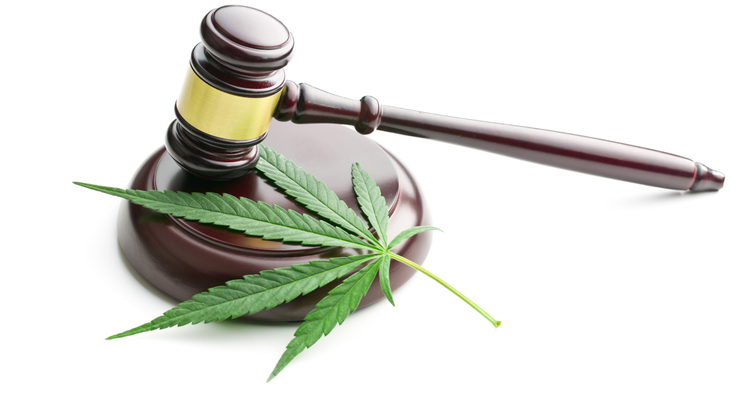Afternoon Briefs: Justice Thomas questions federal pot law; Jones Day pay case dropped

Image from Shutterstock.
Justice Thomas questions government’s ‘half-in, half-out’ pot stance
U.S. Supreme Court Justice Clarence Thomas said Monday the federal government may no longer have the authority to intrude on the states’ powers to legalize marijuana. Thomas commented in a statement regarding cert denial in a tax case involving a pot business. Thomas said the 2005 case upholding the federal government’s power to ban local marijuana use was based on comprehensive legislation regulating the interstate pot market. The federal government’s current “half-in, half-out” approach that tolerates yet forbids local use of marijuana has undermined the 2005 decision, he said. Thirty-six states allow medical marijuana, and 18 states allow recreational marijuana. (NBC News, Law.com, USA Today, Thomas’ statement)
Last Jones Day plaintiff drops claims
The last plaintiff to sue Jones Day for alleged pay discrimination has dropped her individual claims, according to a notice filed in federal court Monday. Former Jones Day associate Katrina Henderson did not say whether she reached a settlement in her suit, which also alleged racial discrimination. Henderson and the other five plaintiffs had dropped class action claims in December after receiving data that did not support them. The five plaintiffs then dropped their individual claims in March, without saying whether they had settled. (Reuters, Law360)
2 law firms announce merger date
Holland & Knight and Thompson & Knight announced Monday that they will merge on or around Aug. 1. The law firms had previously disclosed that they were in merger talks. The combined firm will use the Holland & Knight name. It will have about 1,600 lawyers and combined revenues of more than $1.2 billion, according to previous coverage. (Law.com, Bloomberg Law)
Johnson & Johnson reaches $230M deal in suit over opioid marketing
Johnson & Johnson has agreed to pay the state of New York up to $230 million to resolve claims that its marketing helped fuel the opioid epidemic. Johnson & Johnson said in a statement it did not admit liability or wrongdoing. (The New York Times, Law360, New York attorney general’s press release)



